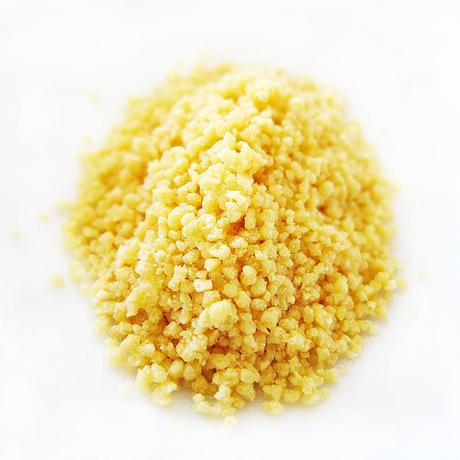 Is Soy Lecithin Safe?
Is Soy Lecithin Safe?
In this post, I’m going to discuss the safety and usage of an ingredient that seems to be ubiquitous in a lot of nutritional supplements available in the marketplace today: soy lecithin. Should you be avoiding it because it comes from soy and why is it used by so many top supplement manufacturers?
For the sake of readers who still think soy is a health food, let me start out with a brief explanation of the dangers of soy. Fermented soybean products such as miso and tempeh have been used throughout Asia as a condiment that is often added to soups for flavor or texture. This is a healthful usage of soy for many individuals. However, most recently soybeans have been genetically modified by scientists at Monsanto, and a protein isolate has been produced from it and marketed as a health food and meat replacement in the form of faux meats, protein powders, and nutrition bars. This is not the traditional usage of soy and it’s no surprise that many individuals have developed food sensitivities and allergies to soy because of this.
Consumption of soy protein isolate and unfermented soybean curd (tofu) can trigger an autoimmune condition known as Hashimoto’s hypothyroidism (the most common form of hypothyroidism that affects mostly women), as well as digestive problems similar to the effects of lactose intolerance. Men who eat soy regularly can develop gynecomastia (man boobs) because of the large amount of phytoestrogens found in soy. There is also some research that suggests that consumption of tofu may promote Alzheimer’s disease, particularly in men. Long-term consumption of soy protein isolates can cause infertility in both women and men. These startling dangers of soy have caused many to diligently read product labels for presence of soy protein and soy derivatives. Many choose to avoid all supplements that contain one ubiquitous ingredient: soy lecithin.
If soy in so dangerous, then why do so many supplement manufacturers still include soy lecithin in their products? Have they been hiding under a rock for over a decade while the average homemaker now knows that soy protein bars are bad and beef is good? I’m writing to explain the truth about soy lecithin so that you can be empowered with the information to help you make the best decisions for your health when choosing a nutritional supplement.
Lecithin is a fat found in egg yolks and soybeans. This particular fat contains high levels of phospholipids such as phosphatidylcholine, phosphatidylinositol and phosphatidylethanolamine. Soy lecithin is often used instead of egg lecithin because it is a vegetarian product that is easier to obtain. Soy lecithin does not contain the phytoestrogens, goitrogens, and other allergenic compounds found in soy protein isolates and other unfermented soybean products. But why is it used? Isn’t it just a cheap filler? Let’s find out…
Soy lecithin is used therapeutically for these conditions:
Alzheimer’s Disease:
Lecithin contains both phosphatidylcholine and phosphatidylecithin which are phospholipids that have been found independently to be useful for the treatment of Alzheimer’s disease.
Lecithin’s phosphatidylcholine content helps to increase brain levels of the neurotransmitter acetylcholine, which is important for memory and which is depleted in Alzheimer’s disease patients.
In a clinical study, some Alzheimer’s disease patients experienced some improvement using supplemental lecithin.
Anti-Aging & Life Extension:
Lecithin is a good source of phosphatidylcholine, a lipid with life extension potential. As the body’s cell membranes age, they contain less phosphatidylcholine, and more cholesterol causing them to become less fluid and more rigid. Old rats incorporate more phosphatidylcholine into their cell membranes than young rats, indicating that phosphatidylcholine can reverse this condition of aging.
Alcoholism:
The phosphatidylcholine content of lecithin inhibits the ability of alcohol to cause gastric ulcers, liver damage, pancreas damage and pancreatitis.
Cholesterol:
High cholesterol is not a dangerous problem, but an unfavorable cholesterol ratio of high LDL and low HDL (an HDL below 60 for women and 50 for men) is a serious risk factor for cardiovascular disease because it means that you have a lot if inflammation in your body (which is very dangerous). Lecithin has been found to lower total serum cholesterol by an average of 33%, to lower total triglycerides by an average of 33%, to decrease “bad” LDL cholesterol by an average of 38% and to increase “good” HDL cholesterol by an average of 46% after thirty days of daily consumption of lecithin.
Lecithin needs to be used for at least one month before its effects on blood lipids become evident.
Detoxification:
Lecithin’s phosphatidylcholine content facilitates the detoxification functions of the liver.
Gallstones:
Lecithin contains a component named phosphatidylcholine that has been found to prevent and possibly treat gallstones. Studies have shown that when the phosphatidylcholine to cholesterol ratio of the bile decreases, the risk of gallstones increases.
Hepatitis:
The phosphatidylcholine content of lecithin accelerates recovery from hepatitis A and reduces the number of relapses in hepatitis A patients. Phosphatidylcholine also accelerates the recovery from hepatitis B and alleviates hepatitis C.
Kidney Stones:
The phosphatidylcholine content of lecithin prevents and dissolves kidney stones by emulsifying their constituent lipids.
Liver Support:
The phosphatidylcholine content of lecithin facilitates the detoxification functions of the liver.
Studies on primates have found that lecithin helps to protect the liver from the toxic effects of alcohol and helps to prevent cirrhosis of the liver and fatty liver.
Manic Depression:
The phosphatidylcholine content of lecithin is useful for the treatment of manic depression.
In a clinical trial, phosphatidylcholine from lecithin was found to result a significant improvement in the manic phase of manic depression in 83% of patients.
Memory:
Lecithin’s phosphatidylcholine content has been found to improve memory, especially in people with existing memory impairment. Phosphatidylcholine from lecithin “works” by maintaining a neurotransmitter named acetylcholine that is involved in memory.
Pancreatitis:
The phosphatidylcholine component of lecithin has been shown in an animal study (rats) to prevent alcohol from causing pancreatitis.
Peptic Ulcers:
The phosphatidylcholine content of lecithin inhibits the ability of alcohol and non-steroidal anti-inflammatory drugs (NSAIDs) such as ibuprofen and indomethacin to cause gastric ulcers.
Dosage:
10,000 – 25,000 mg per day (10 – 25 grams per day).
Conclusion
So should you be avoiding products containing soy lecithin? My thoughts are that avoiding such products can be compared to the unfounded avoidance of saturated fats because of a false belief that they are harmful. I don’t intend to avoid lecithin, whether it is derived from soybeans or egg yolks, and in fact, I believe it is a healthful ingredient that can promote brain health, daily detoxification, and longevity.


posted on 07 May at 05:16
90 percent of all thyroid disease is autoimmune.The reasons Dr.s dont test for antibodies is because they have no cure. Soy as well as other goitrogenic foods best be avoided unless fermented soy, or soy lecithin,and unless veggies are steamed.